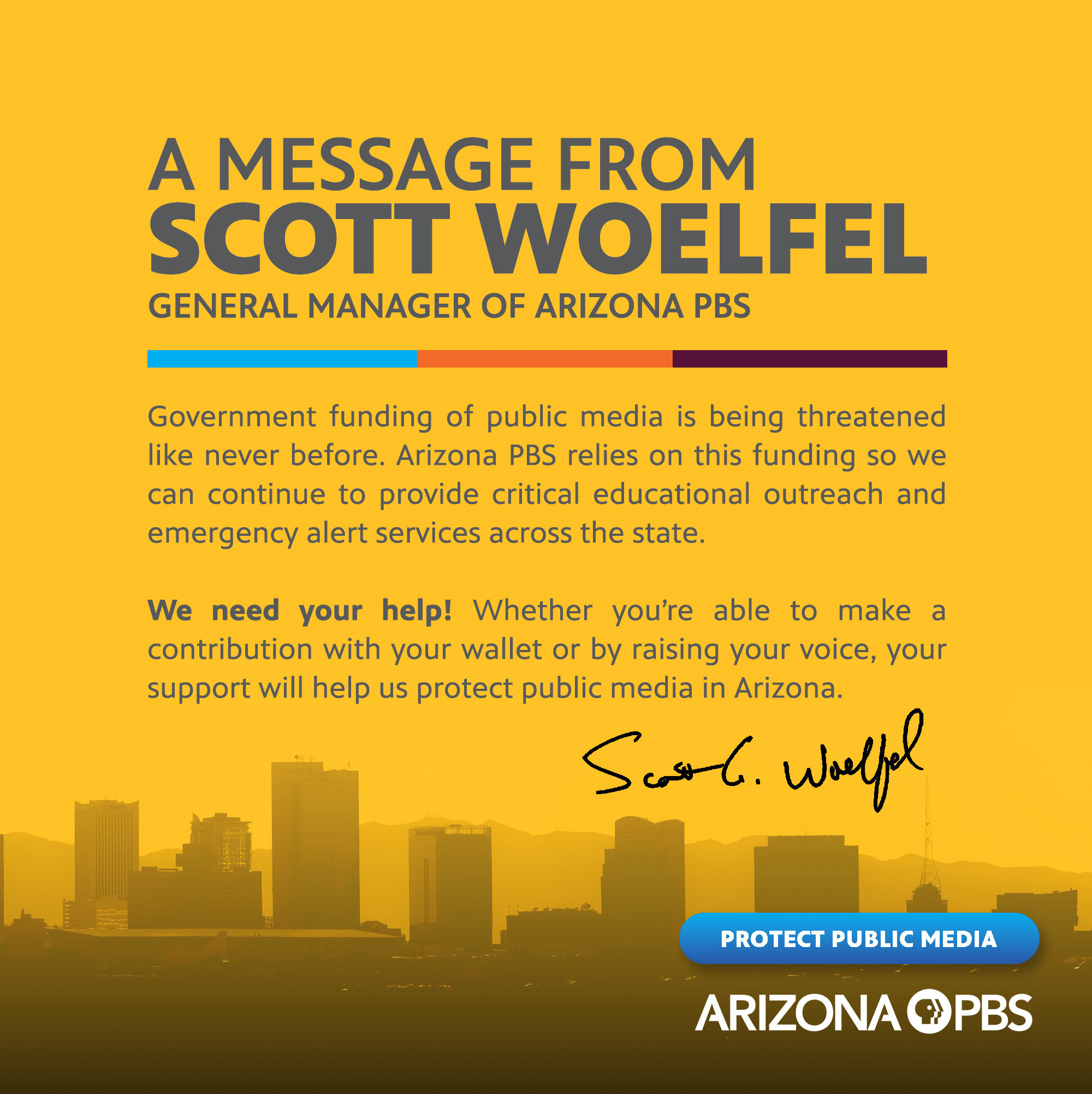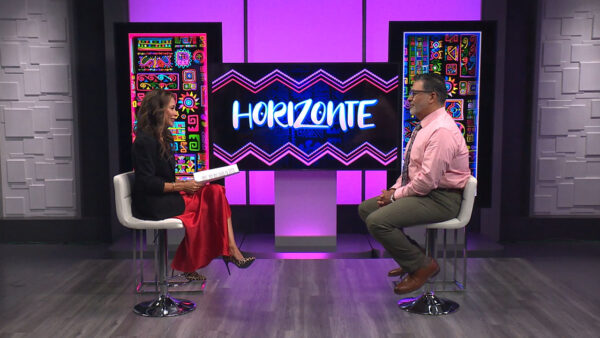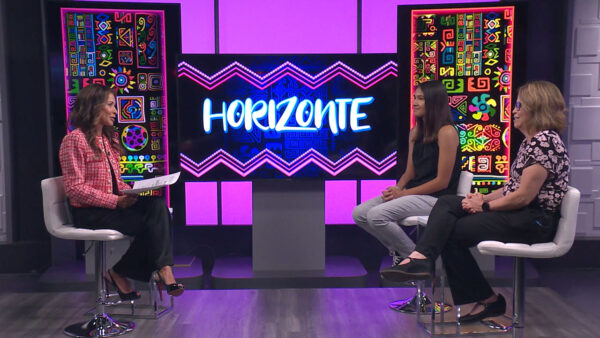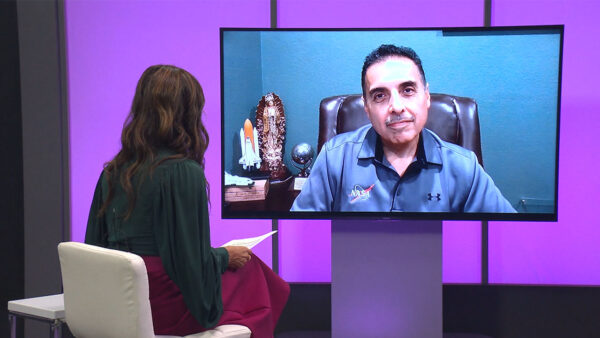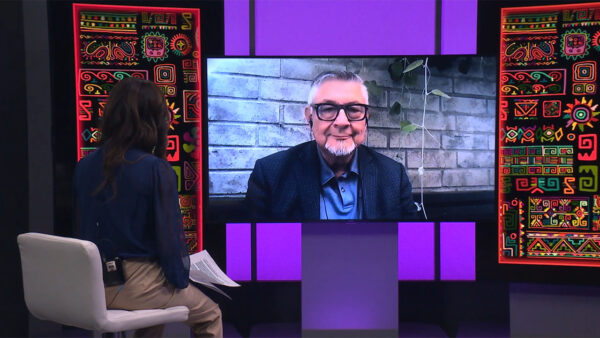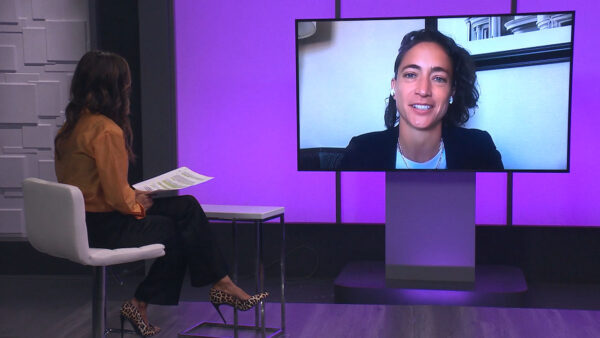The acquittal of George Zimmerman in the shooting death of teenager Trayvon Martin is prompting rallies and demonstrations across the country.
Arizona History Professor and Founding Director for ASU’s Center for the Study of Race and Democracy, Matthew Whitaker and Attorney and former Chairman for the National Council of La Raza, Daniel Ortega give their reactions to the verdict.
Jose Cardenas: Good evening. Thank you for joining us. This week thousands of demonstrators demanding "justice for Trayvon" marched in major cities across the United States and here in the valley to protest the acquittal of George Zimmerman in the shooting death of teenager Trayvon Martin. Joining me tonight to talk about their reaction to the verdict is Arizona state university history professor Matthew Whitaker. Professor Whitaker is also the founding director for the ASU's center for the study of race and democracy. Also here is valley attorney and former chairman for the national council of LaRaza, Daniel Ortega. Thank you for joining us on "Horizonte." I don't want to spend much time talking about the trial because it was covered endlessly for weeks and it is over. But just some quick reactions from both of you. You first, Danny, on the trial.
Daniel Ortega: First of all, I have to start by saying you have to respect the verdict. The people who actually heard all of the evidence were those six jurors. I was disappointed, despite the fact that I respect it. But I was intrigued by a lot of what went on. First of all, a six-person jury, which is not common throughout the country. The six-person jury were all women. And just --
Jose Cardenas: The fact that it was all women made it even a little bit more surprising --
Daniel Ortega: I thought it was favorable that you --
Jose Cardenas: Favorable to the prosecution.
Daniel Ortega: To the prosecution. I thought that that would help the case. But at the end of the day, it didn't go in the direction that I thought it was going to go given the facts of this particular case. But we have to now I think move on to what's next.
Jose Cardenas: Professor Whitaker, your thoughts on the jury trial itself, the verdict.
Matthew Whitaker: I was devastated by it. And very angry, righteous anger, consternation that something like this could happen. I thought it was a gross miscarriage of justice. I don't think that is different that the legal thing you talk about. Legalities and justice aren't always the same thing. But I was frustrated and angered by it as were a lot of people. I think this is a textbook case of the predator becoming the victim and the victim becoming the predator. And I think social constructions of race and prejudice and stereotype had a lot to do with that. Because it is not uncommon for people of color, in this case African-Americans to be treated to a different kind of justice. I think the assumption early on was that there was a possibility for justice for Trayvon Martin. I think justice was always going to allude him quite frankly given the nature of our criminal justice system. The fact of the matter is that Trayvon Martin really never had a chance, given the -- of race in this country. I was surprised by the outcome, quite frankly, but I was still angry and devastated. The presumption is that the system works. Right. The system did exactly what the system is supposed to do. It worked. It worked in favor of Zimmerman. And that's what I expected to happen all along.
Daniel Ortega: How do you have a young man who is unarmed, walking through a neighborhood with candy in his hand, a 17-year-old child, how is it justified to use the kind of deadly force that was used here? I mean, the more I play over in my mind, the more disappointed that I am in this verdict. But I think it has a lot more to say about who we are as a country than it does about the particular case.
Jose Cardenas: Well, and so many people say that it is not about race. And they point to the fact that Zimmerman's mother is Peruvian, and therefore race couldn't have entered into that. What --
Daniel Ortega: First of all the majority of people who say it wasn't about race are people who are not victimized by racial profiling. We have to continue to accept that there are people who are in denial about the racial attitudes that we have in this country and how they affect people's actions like in this case with Trayvon Martin. So, look, we can't make -- we can't use the race card all of the time. But I think there are particular situations in which the race card is being used against us, rather than us using it as a way of trying -- and in this situation, people who say that race had nothing to do with this, I think, are just in denial. And we need to get some -- take some responsibility to move forward.
Jose Cardenas: And professor Whitaker, what do you say about the assumption that some people seem to make as I mentioned to Danny, that because there was another person of color, person they perceived to be a person of color, that race couldn't have been a factor?
Matthew Whitaker: I think that's nonsense. Two things. First of all, I question the assumption that he is Hispanic. That may be a controversial statement to make, but folks -- well, he said he was Hispanic. His mother is Peruvian. My response, what does that have to do with anything? Most people of color, particularly Latinos and blacks, especially where I grew up, race was culture, custom -- all of us had members of our family, some were blonde hair, blue eye, consciousness and custom. My last name is Whitaker. That's a British name. That doesn't make me British. DNA tests say I'm 35% Anglo Saxon from the British isles, and Norwegian -- how many people if I walked out on the street and said I'm a Norwegian Jew or I'm British, I'm a white British person -- it is more complicated than that. Race and background is about culture and context. That is the first thing. The second thing quickly is that it's nonsense to believe that a person of color is incapable of holding racial prejudices and biases and bigotries towards another person of color. Some people of color hate themselves and their communities even worse than some racist white people do because they imbibe the same white supremacist and colonial type of mentality that the dominant population has. I ask people, have you ever watched crabs in a barrel. They will crawl over each other, snap at each other, do whatever possible to get to the top. We have to get beyond this notion that people of color can't do things to one another -- we have to have a nuance conversation about what race actually is. We can't do that, particularly when we have leaders running around with this rhetoric of color blindness on --
Daniel Ortega: Racism exists as an institution in this country and it affects all groups.
Jose Cardenas: On this show in the past, Hispanics as capable of racial bias as anybody else.
Daniel Ortega: Absolutely. Tension between the African-American community and Latino community, a long history. The key here, Trayvon Martin, African-American.
Matthew Whitaker: That's right.
Daniel Ortega: And that he was walking through a neighborhood that he didn't belong in. Because if he had not been African-American, he would -- he would never have faced the fate that he faced that night. And I think that is where the real race issue is. Let's not talk about Zimmerman. That to me is a cop out. A way of taking the focus away from the fact that Trayvon Martin because he was African-American and black, okay, met his fate that night. Otherwise it wouldn't have happened. It doesn't matter what Zimmerman looks like or who his parents are.
Jose Cardenas: Where do we go from here? A lot of calls for dialogue. But they're somewhat -- do we talk about the stand your ground laws? Do we talk about carry weapons? Or do we focus on race? What is your answer to that?
Matthew Whitaker: I think it has to be holistic and targeted. Those interested in having dialogues, they need a dialogue amongst themselves. It can't just be let's get together and have a conversation about this. I think it has to be strategic, targeted and at some point with an action plan behind it. What are we going to do moving forward? The center is planning on doing something like that in a month or so --
Jose Cardenas: September --
Matthew Whitaker: September 11th, looking at having a forum that at the end of it will have tangible, some take-aways so that folks can go back to their communities and do specific things to prepare themselves so that we can work in our communities to ward off this happening again. But if it does happen, unfortunately I'm sure it will at some point, because we haven't had this conversation about race that we need to -- that we will be more prepared. And I think we need to hold our leaders accountable before this is a tragedy.
Jose Cardenas: How do you do that?
Matthew Whitaker: We have to engage them. When we have these community conversations, we can't just be talking to the choir. They need to be in the room with us so that they can actually -- what is your position on stand your ground in Arizona? What does that mean? Is the predator the prey or the prey the predator? How do we police our own communities? Stereotypes, assumptions, biases in our own educational system. We need to have them in the room to have those conversations. If they're not, we need to hold them accountable. It's not enough -- we have to say it's a reality. Like in the film, The Matrix. It may not be real. In biology, social construction, but it is real because we've made it real in our minds.
Jose Cardenas: Danny what should we be talking about right now?
Daniel Ortega: I think we ought to continue to talk -- look, we have made some progress. Let's not take this one case and act like we haven't made progress in the last 40 years. We clearly have. But we need to do more. To me it is a little bit more simple, academic -- check your own biases. Check your own biases and leave them at the door. Because your biases influence your family, your children. And those people around you. And so I think it is very basic that we all have to start looking at our biases, specifically racial bias. We know a lot about how we are and how we treat women as males. Right? We know a lot about how we treat other groups, male or female. And begin to -- the process of one person at a time really looking at how we raise our kids and how we interact with a community in a way that helps to eliminate that bias that exists in our society.
Jose Cardenas: What are some of the steps in that process that would go beyond you dealing with your individual family, the rest of us dealing with individual families? Something that groups, for example, can do to make this happen?
Daniel Ortega: I buy what the professor said about needing to sit down and talk about this and deal with it academically. I would rely on the professor's advice on how we best do this. Bottom line, we have to take some leadership to recognize our own racial biases before we go to somebody else's house and talk about theirs.
Jose Cardenas: We've had these discussions before, Danny. And it may be unfair to say that nothing seemed to come of it, but can you point to any tangible benefits from those dialogues in the past?
Daniel Ortega: I clearly see the younger generation, and we're talking from 18 to 25, being totally different from a bicultural, biracial, much more diverse than -- than my generation, and I think the professor's generation -- I think there has been marked improvement. I just think it has been too slow and those who are still in denial that they have no racial bias, in a country where racism -- is not going to get us anywhere.
Jose Cardenas: Professor Whitaker, what about the protests that have been sparked by the results of the Zimmerman verdict? Do these serve any purpose?
Matthew Whitaker: Certainly. They draw awareness and attention. It is good to join with like-minded individuals and let your voice be heard. That's one thing that we can do. But I also think we need to come away with practical solutions moving forward as well. A lot of people involved in those protests, they're doing that too. Unfortunately, the people of color for the most part and folks who are acknowledging they have racial biases they are bearing the brunt of the organizing, which is frustrating. And we just have to acknowledge that. We've made some progress. You're definitely right on that. Like you said, we have more -- we have further to go. A famous person said, Malcolm X, if you stab somebody in the back with a nine inch knife and you pull it out six inches, is that progress? The knife isn't all of the way out yet. Some people won't even acknowledge that the knife is there. How can you begin to heal until you pull the knife all of the way out, suture the wound and it literally starts to heal. We are not at the knife is still there stage. The protests are great and I think people need to be happy that it has been constructive and I advise people to be nonviolent --
Jose Cardenas: Boycotts in Florida -- Stevie Wonder --
Matthew Whitaker: Boycotts are effective, too. I think it needs to be very, very holistic. The one thing that I would like to see, however, more often, are people who are directly engaging leadership in their country, in their states, in their communities, particularly from the legal community, from the legislative community. Politicians. Law enforcement. We need to have a direct conversation with them in relation -- on an ongoing basis and they need to be accountable to us. We need to know, for instance, on this issue, how would they have handled it here? What do they think of stand your ground? How do they envision these type of things? What communities are they reaching out to and speaking to?
Jose Cardenas: And what about, Danny, you mentioned there has been some progress and professor Whitaker I think you would concede that but you point out it is hard to tell at times, but one of the things that struck me the most after the verdict came out and the reactions was people talking about the talk. That goes on in African-American families, and in Latino families. How to deal with the police to make sure that you don't do anything that may be -- concerns or stereotypes of young minority --
Daniel Ortega: Well, really have to insist that our law enforcement officials are absolutely trained to deal with this. And I think we're getting a lot of people to come into law enforcement who are just like us. Biases of all types. And think the kind of training that is going on in the country, a little better than it used to be, but really has not produced, in my opinion, the continuous attempt to try to eliminate racial bias in law enforcement. I think that when you're African-American, when you're Latino, when you're somebody of color, you have to tread on thin ice, you know, or else the likelihood that you will get in trouble and that you will get arrested is much higher than somebody who is not of color. And I think the way -- first of all, we have to recognize it. Look, some people think the attitude -- treated this way because I'm Latino. Treated -- well, you are asking to be treated like you're black or Latino if you are facing it that way to begin with. And I've seen this in my practice and the things that I do. And it's hard to convince a jury that the color of the police officer that what they did in this case was use excessive force or treat somebody in the way they shouldn't have been treated or stop them to begin with. For political reasons Joe Arpaio used race, used racial bias to enforce the law, so where have we gotten and what do we need to do? And the continued training, the continued need to dig deep is still there.
Jose Cardenas: Professor Whitaker, almost out of time. Last question. Going back to the conference that you want to hold, what do you intend to do and to whom is the conference targeted?
Matthew Whitaker: Everyone really, but we're targeting young people, educators, and elected officials and law enforcement to come in and have the conversation together. One big conversation and then breakout sessions, talk about, specific action items moving forward from the community level, state, national level and coming back together --
Jose Cardenas: Starting the dialogue.
Matthew Whitaker: Starting the dialogue and moving forward.
Jose Cardenas: That is the end of our interview. We will be talking about this more. Thank you for joining us.
Matthew Whitaker: Thank you.
Matthew Whitaker:History Professor & Founding Director, ASU's Center for the Study of Race and Democracy;Daniel Ortega:Attorney & former Chairman, National Council of La Raza;
